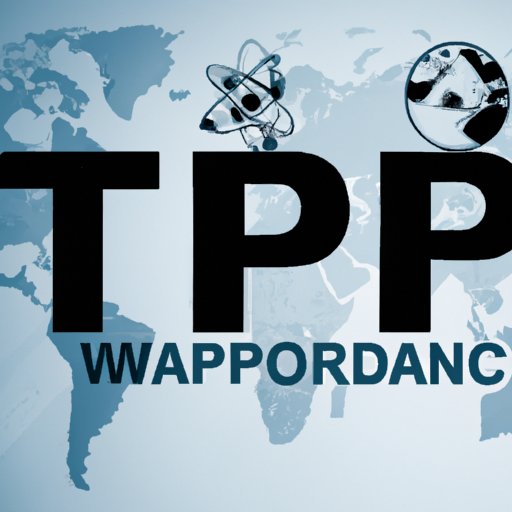Introduction
The Agreement on Trade-Related Aspects of Intellectual Property Rights (TRIPS) is a multilateral agreement administered by the World Trade Organization (WTO). The agreement was negotiated in 1994 and came into force in 1995. It sets out minimum standards of protection for intellectual property rights (IPR), such as patents, copyrights and trademarks, in order to promote innovation, creativity and competition.
Exploring the Benefits and Challenges of the Trips Agreement
The TRIPS Agreement has been widely viewed as a success in terms of increasing intellectual property protection. By harmonizing existing international IPR standards, it has extended patent rights to cover areas such as pharmaceuticals and biotechnology, which were previously not covered. This has resulted in increased protection for inventors and creators, allowing them to benefit from their innovations. Developed countries have also benefited from the agreement, as it has allowed them to increase their exports of IPR-protected goods and services.
At the same time, the TRIPS Agreement has faced criticism from developing countries, who argue that it does not provide sufficient flexibility for them to protect their own interests. Developing countries often lack the resources to enforce the stringent standards set out in the agreement, making it difficult for them to compete with developed countries in the global marketplace. Furthermore, the agreement has been accused of restricting access to essential medicines and stifling technology transfer.

How the Trips Agreement Impacts Trade
The TRIPS Agreement has had a significant impact on international trade. By harmonizing IPR laws across different countries, it has made it easier for companies to do business in multiple countries without having to worry about conflicting regulations. It has also led to the standardization of enforcement practices, meaning that companies can be sure that their IPR will be respected in any country they operate in.
Examining the Impact of the Trips Agreement on Developing Countries
The impact of the TRIPS Agreement on developing countries has been mixed. On the one hand, it has provided greater protection for IPR holders, resulting in increased incentives for innovation. On the other hand, it has been accused of restricting access to essential medicines and stifling technology transfer. In particular, the agreement’s provisions on patent protection have been criticized for making it more difficult and expensive for developing countries to access life-saving drugs.
In addition, the agreement has been accused of undermining food security in some countries. By granting IPR protection to certain agricultural products, the agreement has made it more difficult for farmers in developing countries to access the seeds and technologies they need to produce food. This has resulted in higher costs for farmers and reduced access to food for consumers.

The Legal Framework of the Trips Agreement
The TRIPS Agreement is legally binding on all WTO member states. Under the agreement, each country must implement laws and regulations to ensure the protection of IPR, including patents, copyrights and trademarks. These laws must be in line with the standards set out in the agreement. Member states must also ensure that these laws are enforced effectively.

Understanding the Dispute Settlement Mechanism of the Trips Agreement
The TRIPS Agreement includes a dispute settlement mechanism to resolve disputes between member states. This mechanism allows countries to bring complaints against other countries if they feel their IPR is being violated. The dispute resolution process involves submitting a complaint to the WTO, which is then reviewed by a panel of experts. If the panel finds that the complaint is valid, the offending country must take steps to address the issue.
The WTO also plays an important role in enforcing the agreement. If a country fails to comply with the agreement, the WTO may impose sanctions, such as trade restrictions or tariffs. This helps to ensure that all WTO member states abide by the agreement.
Conclusion
The TRIPS Agreement is an important part of the global trading system. The agreement has increased intellectual property protection and led to the standardization of IPR laws across different countries. However, it has also been criticized for restricting access to essential medicines and stifling technology transfer. It is important for countries to understand the implications of the agreement and take steps to ensure that their interests are protected.
Overall, the TRIPS Agreement has had a significant impact on international trade and has helped to create a level playing field for companies operating in different countries. Despite the challenges it poses to developing countries, the agreement has been successful in providing increased protection for IPR holders and promoting innovation and creativity.
(Note: Is this article not meeting your expectations? Do you have knowledge or insights to share? Unlock new opportunities and expand your reach by joining our authors team. Click Registration to join us and share your expertise with our readers.)
